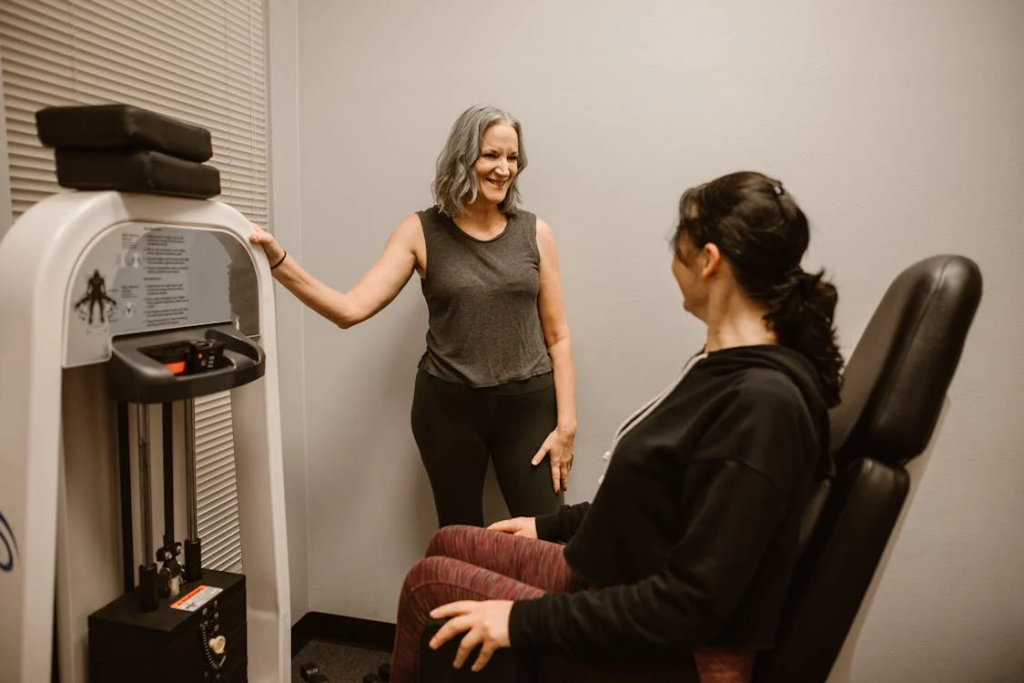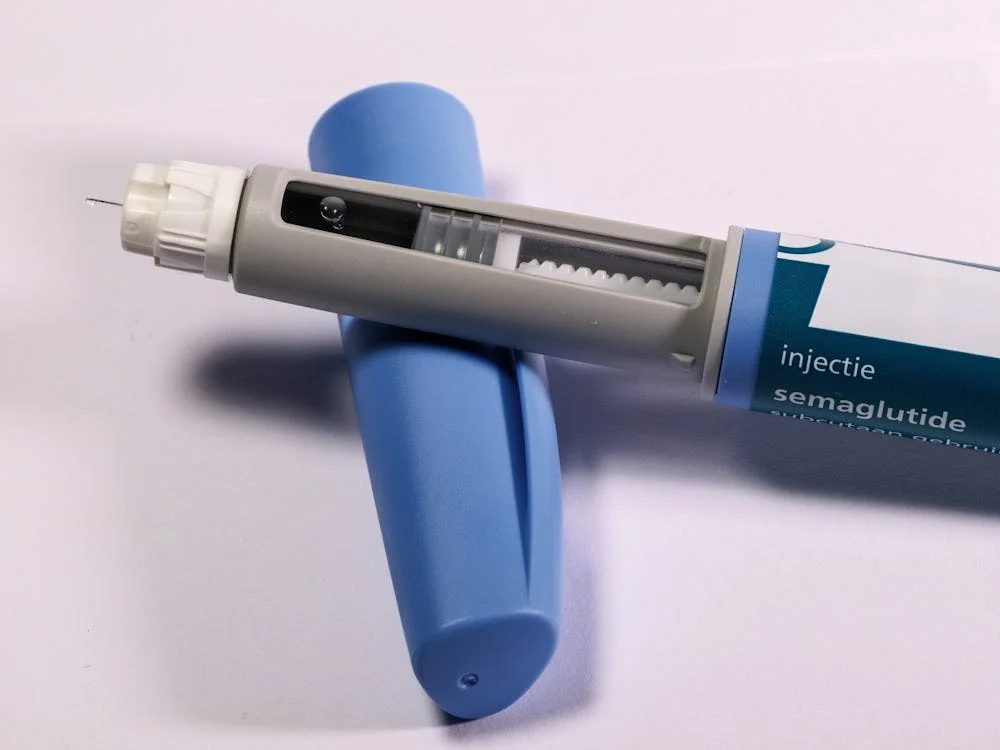Frozen shoulder, medically known as adhesive capsulitis, is a painful and disabling condition that affects the shoulder joint. It is an inflammatory condition with symptoms as pain, stiffness, and a loss of mobility. This condition can last from several months to a few years, often disrupting daily activities such as dressing, reaching, or even sleeping. Women between the ages of 40 and 60 are most commonly affected. Although research finds no direct link, frozen shoulder often develops in women before and during the onset of menopause.
What Causes Frozen Shoulder?

The exact cause of the frozen shoulder remains unknown. The condition develops when the connective tissue capsule surrounding the shoulder joint thickens and tightens, developing fibrous tissue, limiting mobility. Sometimes, it follows an injury, surgery, or prolonged immobility, but in many cases, it appears without any obvious trigger. Systemic diseases such as diabetes and thyroid disorders also increase the likelihood of developing frozen shoulder.
Hormonal Changes and Frozen Shoulder

While there is no definitive evidence linking menopause to frozen shoulders, hormonal changes during menopause may contribute to its development. Estrogen, a hormone that declines sharply during menopause, has anti-inflammatory properties, maintains the health of connective tissues, muscles, and bones. As estrogen levels drop, women may experience joint pain, stiffness, and a higher risk of musculoskeletal conditions, including frozen shoulder.
Why Are Women More Prone to Frozen Shoulder?

Statistically, women are more likely than men to develop frozen shoulder, especially during the years surrounding menopause. The decline in estrogen is thought to affect the elasticity and function of the shoulder’s connective tissues, making them more susceptible to inflammation and stiffness. More than half of menopausal women report joint stiffness, and frozen shoulder is frequently seen in this group. However, menopause may indirectly cause joint pain by contributing to depression, sexual dysfunction, poor sleep, and increased tiredness in women.
The Three Stages of Frozen Shoulder

Frozen shoulder progresses through three distinct stages. The first is the freezing stage, where pain gradually increases and movement becomes more limited. This phase can last from 6 weeks to 9 months, affecting mobility in daily activities.
The second stage, known as the frozen stage, is marked by reduced pain but persistent stiffness, which makes shoulder movement very challenging. This stage typically lasts between 4 and 12 months, impacting quality of life significantly. The final stage is the thawing stage, during which mobility gradually improves and stiffness decreases. Full recovery can take up to 2 years, depending on individual factors.
Risk Factors Beyond Menopause

Although menopause and hormonal changes are important considerations, other factors can increase the risk of frozen shoulder. Diabetes, thyroid disorders, prior shoulder injuries, and other medical conditions increase frozen shoulder risk in both women and men.
Diabetes

Research shows that people with diabetes are up to 4 times more likely to experience this condition than those without diabetes. High blood sugar levels can affect the connective tissues in the shoulder, leading to inflammation and stiffness.
Thyroid Disorders

Both hyperthyroidism and hypothyroidism are linked to an increased risk of frozen shoulder. Thyroid hormones maintain healthy connective tissues and joint function in the body. When thyroid function is abnormal, it can contribute to inflammation and changes in the shoulder capsule.
Previous Shoulder Injury or Surgery

A history of shoulder injury or surgery is another risk factor for frozen shoulder. Immobilization of the shoulder after an injury or surgical procedure can lead to reduced movement and stiffness in the joint. This lack of mobility can trigger the thickening and tightening of the shoulder capsule, resulting in frozen shoulder. Early rehabilitation and gentle movement are essential after injury or surgery to help prevent this condition.
Other Medical Conditions

Certain medical conditions, such as heart disease and Parkinson’s disease, also increase the risk of developing frozen shoulder. These conditions can affect blood flow, nerve function, and overall joint health, making the shoulder more susceptible to inflammation and stiffness. Individuals with these underlying health issues should monitor their shoulder mobility and consult a healthcare provider if they notice any changes.
Read More: 6 Common Habits You Had No Idea Were Linked To Lower Back Pain
Treatment Options for Frozen Shoulder

Treating frozen shoulder requires a comprehensive approach tailored to the stage and severity of the condition. The main goals are to reduce pain, restore mobility, and improve quality of life.
Physical Therapy

You can stretch and strengthen your shoulder with targeted exercises, gradually improving flexibility and increasing your range of motion. Early and consistent participation in physical therapy sessions is important for a speedy recovery. A physical therapist will curate the exercise program to the stage of frozen shoulder. You will make progress safely and effectively, avoiding additional pain or injury, by following their guidance and recommendations.
Read More: 13 Easy Stretches to Fix Your Tight Shoulders
Medications

Over-the-counter painkillers such as paracetamol or nonsteroidal anti-inflammatory drugs (NSAIDs) can provide relief for mild to moderate discomfort. In more severe cases, healthcare providers may prescribe oral steroids or administer steroid injections to reduce inflammation. However, while these injections can provide substantial and rapid pain relief, the relief is temporary.
Joint Injections

Doctors often use corticosteroid injections to manage frozen shoulder when you experience debilitating pain. These injections deliver powerful anti-inflammatory medication directly into the shoulder joint, providing rapid pain relief and improving mobility. When combined with physical therapy, corticosteroid injections can help patients regain movement more quickly. However, the effects are usually temporary, and injections should be part of a broader treatment plan.
Hydrodilatation

Hydrodilatation is an outpatient procedure that can benefit some individuals with frozen shoulder. It involves injecting a sterile fluid, often saline mixed with a corticosteroid, into the joint capsule. This process stretches the capsule, helping to break up adhesions and improve shoulder movement. Hydrodilatation is usually followed by physical therapy to improve mobility and prevent the recurrence of stiffness and joint pain.
Read More: Effect Piriformis Stretch to Ease Lower Back, Hip, and Sciatic Nerve Pain
Surgery

Doctors rarely recommend surgery for frozen shoulder, but they may consider it if conservative treatments fail to provide relief. Surgeons perform minimally invasive procedures, such as arthroscopic capsular release, to cut and release the tight capsule around your shoulder joint, aiming to restore movement and significantly reduce pain and stiffness.
The Role of Hormone Replacement Therapy (HRT)

Recent research suggests that hormone replacement therapy (HRT) may help reduce the risk of developing frozen shoulder in menopausal women. Studies have found that women on HRT are less likely to be diagnosed with frozen shoulder compared to those not receiving hormonal therapy.
Estrogen in HRT supports connective tissue health and may reduce inflammation, potentially offering protection against joint stiffness and pain. However, larger-scale studies are needed to confirm these findings and establish HRT as a standard preventive measure for frozen shoulder.
Lifestyle Modifications and Prevention

While not all cases of frozen shoulder are preventable, adopting healthy habits can help reduce risk and aid recovery. Regular shoulder movement and stretching, especially after injury or surgery, are important.
Managing conditions like diabetes and thyroid disorders, following a balanced, anti-inflammatory diet, and promptly consulting healthcare professionals for persistent shoulder pain or stiffness all support joint health and recovery.
When to Seek Medical Advice

If you notice persistent pain and stiffness in your shoulder that limits movement or disrupts sleep, consult a healthcare provider. Early diagnosis and intervention can prevent the condition from worsening and speed up recovery. Frozen shoulder can take a long time to resolve, but with appropriate treatment and patience, most people regain full function.
Disclaimer: This information is not intended to be a substitute for professional medical advice, diagnosis or treatment and is for information only. Always seek the advice of your physician or another qualified health provider with any questions about your medical condition and/or current medication. Do not disregard professional medical advice or delay seeking advice or treatment because of something you have read here.
Read More: Can Magnesium Oil on Feet Boost Sleep Quality and Ease Pain?

